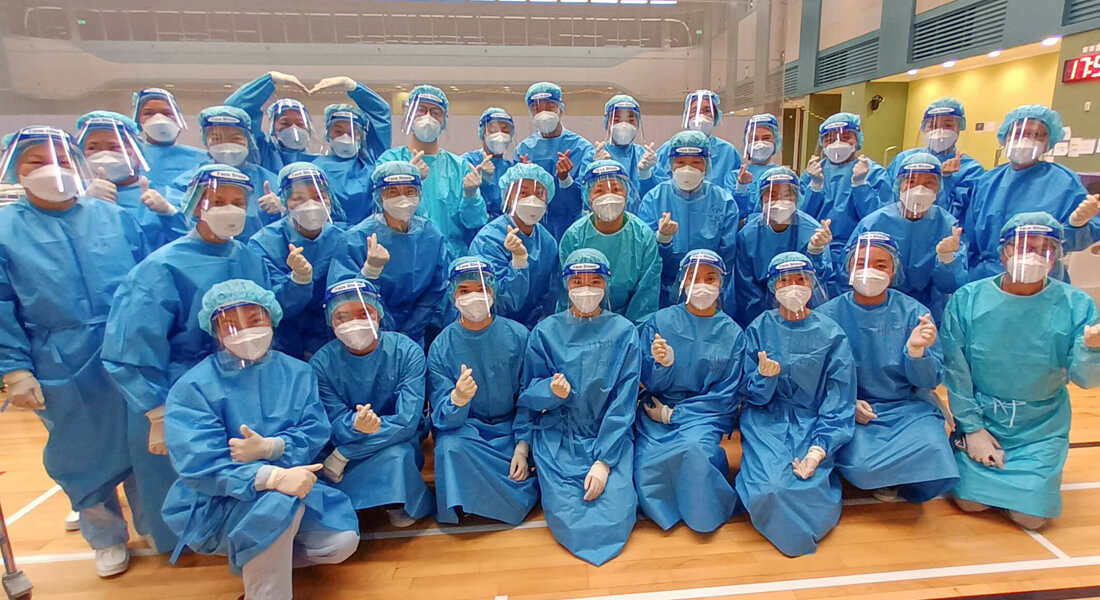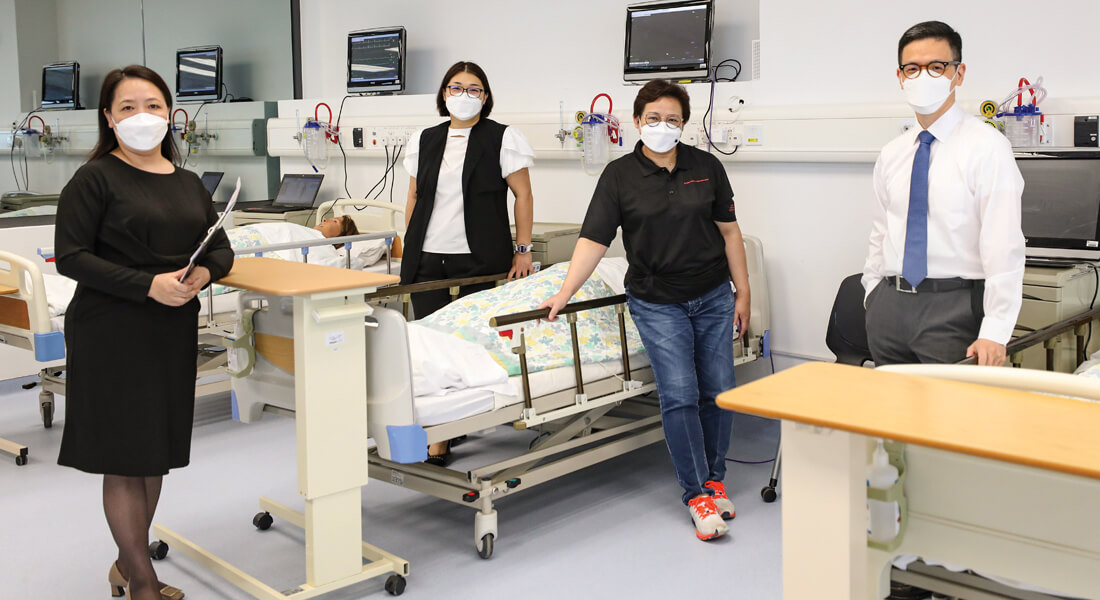
Teaching and Learning
Preparing our Students to Serve in a Time of Need and to Lead in a Time of Challenge
Dr Veronica Lam Suk-fun
|
Senior Lecturer and Director of Master of Science in Nursing Programme
Ms Zoe Ng Lai-han
|
Lecturer and Clinical Coordinator (Internal Affairs)
Ms Jessica Cheuk Yuet-ying
|
Lecturer and Clinical Coordinator (External Affairs)
Dr Kelvin Wang Man-ping
|
Associate Professor and Director of Bachelor of Nursing (Full-time) Programme and Advanced Leadership Track
When the fifth wave of the COVID-19 pandemic struck Hong Kong, all our efforts to lead in nursing development, to create practice models, to establish effective teaching pedagogy and to develop cutting-edge research were put to the test. We emerged stronger than ever, having shown how we can respond quickly in a crisis to serve the Hong Kong community.
As medical services became overwhelmed during the fifth wave, the School was called in to provide emergency support and leadership. More than 500 students in the junior and senior years and almost all teaching staff were immediately put to work to help with testing, vaccinations, patient care and public education.
Being at the forefront in fighting this unprecedented outbreak was a great challenge for everyone, but we were able to conduct this work while adhering to our mission. The teaching team demonstrated leadership and commitment to our high teaching standards, made possible by the strong groundwork we had laid through our curriculum and supplemented by additional training and workshops. This work meant our nursing students were well-prepared to step into highly pressurised situations.
Our students were despatched to the testing centre at To Kwa Wan Sports Centre to help increase testing capacity there and to the first holding centre at Choi Wing Road Sports Centre to help take care of elderly patients. They also assisted with vaccinations and created educational videos about anti-COVID hygienic measures for the general public.
The unfamiliar nature of these situations meant they had to tap into their training in problem-based learning, which has been a core element of the Nursing curriculum for years. For example, at the holding centre, there were no showers and no separate cubicles for beds, so our students used warm wet towels to help clean the old-aged patients, which also gave them a chance to assess if patients had pressure injuries. To help patients stay abreast of the outside world, students have helped them connect with news and family members via Zoom. Such initiatives demonstrated our students’ empathy for patients and their commitment to helping them retain their dignity.
Nursing students were also able to apply their training in interdisciplinary collaboration because they frequently found themselves working with or observing professionals from other disciplines and learning from them. For example, in the vaccination centres, they worked with doctors and clinical staff to calm children down by reassuring them and explaining how the injection would help them. This was invaluable exposure to the soft skills that are an essential part of nursing.
As teachers, we also made sure that students well reaped the benefits of such learning moments by working with them to set learning objectives and by closely monitoring and rigorously assessing their performance. We were onsite wherever our students were placed, helping the community but also continuing to perform our role as educators.
At the same time, we ensured that our other teaching work could proceed with the help of technology. Over the past few years, we have developed expertise in virtual reality, simulation mannequins and online simulations that prepare our students for clinic-like experiences, even when in-person classes have been suspended.
The suspensions during the fifth wave were, of course, the most disruptive of all. Yet we managed to develop a new service within a week and collaborate closely with other disciplines. Thanks to the rigour of our curriculum, our selfless teachers and most importantly our dedicated students.






